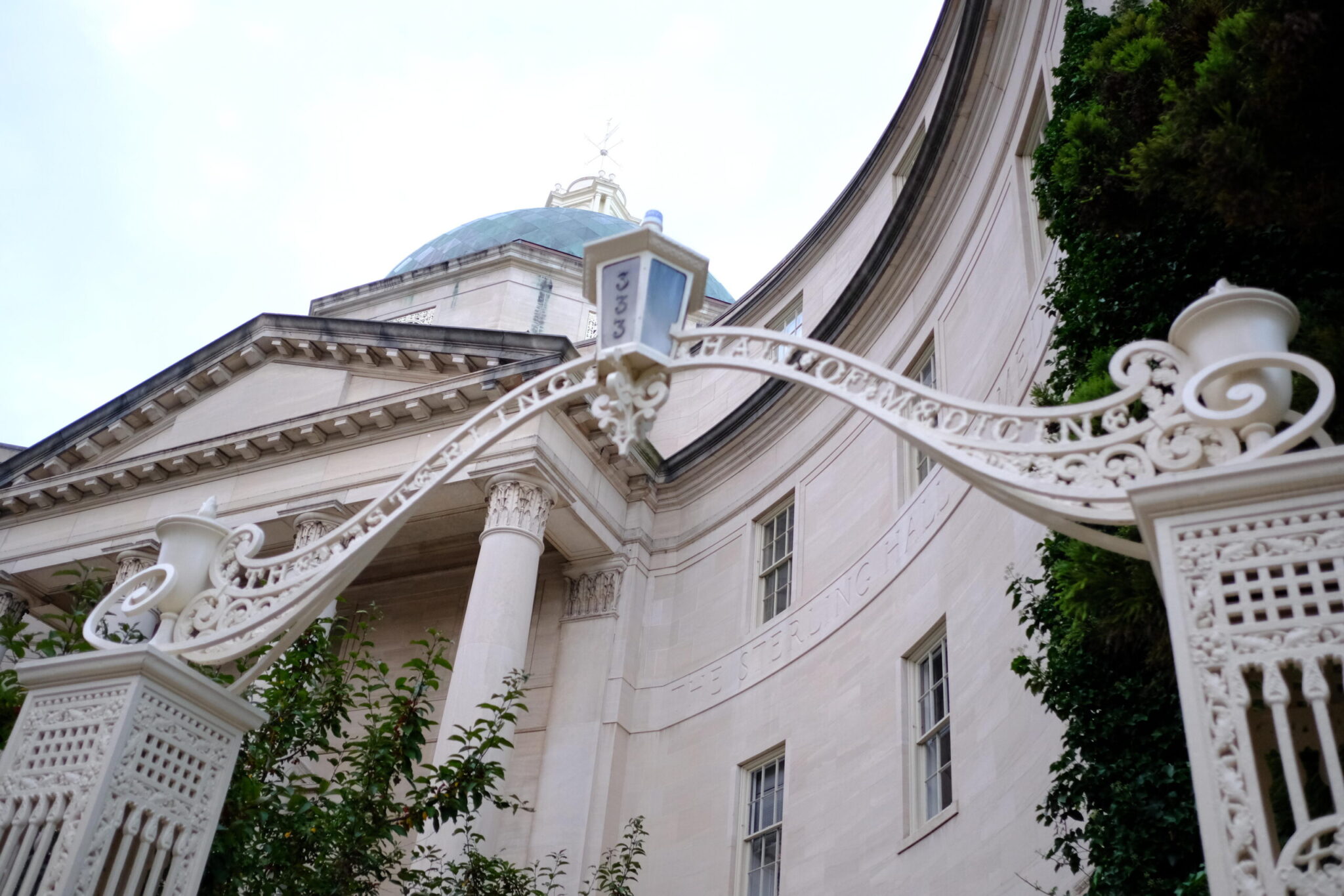New infection and immunity center looks into long COVID-19, chronic Lyme disease
The Yale School of Medicine’s new Center for Infection & Immunity, which launched on Aug. 18, is researching post-acute infection syndromes while encouraging diversity, elevating scientists and incorporating patients as research partners.

Ann Hui Ching, Contributing Photographer
A new center at the Yale School of Medicine is aiming to address post-acute infection syndromes including Long COVID, chronic fatigue syndrome and chronic Lyme disease.
Founded by immunology professor Akiko Iwasaki, the new Center for Infection & Immunity, or CII, was established on Aug. 18. CII involves collaboration between over 25 health care experts in fields ranging from epidemiology to vaccine development. Their goal is to enhance current diagnostic methods and treatments, with the long-term objective of developing cures and vaccines for post-acute infection syndromes.
The Center’s faculty told the News they also hope to cultivate a “patient-partner model” that includes patients’ real-time feedback and symptoms in the process of researching post-acute infection syndromes.
“I’m very excited,” said Iwasaki. “I don’t think any other centers are focusing on these post-acute syndromes, not at all.”
Post-acute infection syndromes refer to a group of chronic health conditions that can develop after the acute phase of a viral, bacterial or parasitic infection. These syndromes generally produce persistent and often debilitating symptoms such as fatigue, unrefreshing sleep, pain and cognitive impairment.
These conditions gained attention after a spike in the number of people suffering from long COVID symptoms during the pandemic, said Nicole Darricarrere GRD ’14, the Center’s scientific program director. This newfound recognition, she explained, has led to greater research funding and collaborative initiatives around post-acute infection syndromes.
“Long COVID is a great opportunity to crack the mystery that we’ve known was there but has been neglected,” said Darricarrere.
Although they arise from different diseases, post-acute infection syndromes share some common symptoms, Iwasaki explained, suggesting that these illnesses share similar biological underpinnings. As a result, the Center plans to prioritize pathobiology research to explore the biology behind the syndromes and develop targeted, effective therapies.
The Center also has a disease prevention arm that will develop new types of vaccines, Iwasaki added. For instance, her team plans to research mucosal vaccines, which are delivered at the sites where pathogens enter the body — such as the nose, mouth or gastrointestinal tract — instead of via injections. As a result, mucosal vaccines station biological guards against germs at the body’s entrances, redirecting the immune response to the locations where diseases start and potentially creating a more effective immune response.
With a traditional vaccine injection, however, those entrances remain open. After a disease invades the body, the immune system has to detect an attack and can only respond after one begins.
“If you can prevent the entry or the interaction at the mucosal site, that would prevent infection even before it goes to your bloodstream or lower respiratory tract,” said Inci Yildirim, a pediatric infectious disease specialist and a vaccine expert in the Center.
According to Darricarrere, the Center hopes to bring together experts from a wide variety of fields, from immunobiology to epidemiology to vaccine development. The interdisciplinary approach, she explained, could promote a deeper understanding of post-acute infection syndromes and accelerate the development of effective treatment strategies.
As a result, Darricarrere and Iwasaki said that they selectively choose scientists from a wide range of backgrounds — including early-career scientists and those from underrepresented groups.
“The collaborative environment is beneficial to any site, but particularly when we are looking at sort of diseases of unknown sort of etiology or infectious diseases that may come up in the future and cause a pandemic,” Iwasaki told the News.
Iwasaki explained that the new Center’s projects incorporate a “patient-partner model” that uses real-time feedback from patients to shape the progress of ongoing trials. Patients can input feedback and medical records on a phone app and can sign up to provide blood samples on a regular basis.
By doing so, patients can contribute actively to the research process surrounding their diseases, rather than being passive participants, Iwasaki explained.
“I think that’s the future of science,” said Iwasaki, “The patients are their own experts, and how they perceive the disease and how they interpret it and tell us about the disease has been incredibly informational and instructive for us.”
By 2025, Darricarre added, the Center will have a physical space. In the interim, researchers leverage available facilities, equipment and training through Iwasaki’s lab. There are already two ongoing clinical trials led by the Center, plus more than seven research projects underway.
The Yale School of Medicine is located at 333 Cedar St.
Correction 9/24: A previous version of this article incorrectly quoted Dr. Akiko Iwasaki as saying “ideology” instead of “etiology.” Additionally, that version described the CII as having seven clinical trials lined up. The CII has seven research projects lined up, not clinical trials.







